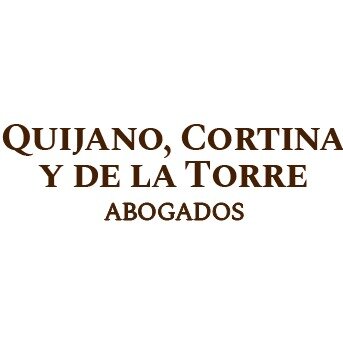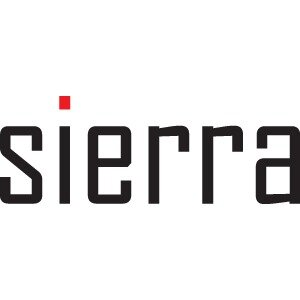Best Water Law Lawyers in Mexico City
Share your needs with us, get contacted by law firms.
Free. Takes 2 min.
List of the best lawyers in Mexico City, Mexico
About Water Law in Mexico City, Mexico
Water Law in Mexico City is the legal framework that governs the use, distribution, management, and conservation of water resources within the city. Given Mexico City's rapid urbanization, large population, and geographic challenges, water law plays a crucial role in ensuring sustainable access to clean water for residential, commercial, and agricultural purposes. The legal structure involves federal, state, and city regulations that aim to balance water rights, promote efficient water use, and protect this vital resource from contamination and over-exploitation.
Why You May Need a Lawyer
Individuals and businesses may need legal guidance in Water Law for a variety of reasons. Common situations include disputes over water access and rights, conflicts about water bills or tariffs, legal issues arising from the use of wells or drilling for water, problems related to water pollution or contamination, challenges in obtaining permits for construction that affects water infrastructure, or enforcement actions by government agencies for alleged violations. A lawyer specializing in Water Law can help interpret complex regulations, represent clients before authorities, negotiate settlements, and protect their interests.
Local Laws Overview
Mexico City's Water Law is influenced by federal regulations such as the "Ley de Aguas Nacionales" (National Water Law), as well as local regulations enforced by SACMEX (Sistema de Aguas de la Ciudad de México). Key aspects include:
- Permitting: Use of significant water quantities, drilling wells, or altering public water infrastructure typically requires permits from both federal and city authorities.
- Water Rights: Rights to access and use water are generally public but can be granted or conceded with strict conditions.
- Tariffs and Billing: SACMEX sets water fees for households, businesses, and industries, with structured billing systems and potential subsidies for vulnerable populations.
- Contamination and Wastewater: Strict rules exist to prevent contamination of water sources. Discharging untreated wastewater is heavily regulated and subject to penalties.
- Rainwater Harvesting: Encouraged by local government, rainwater harvesting systems must comply with safety and health standards.
- Public Participation: Citizens have the right to be informed about water management projects and may participate in certain environmental and planning processes.
Frequently Asked Questions
What government authorities oversee water management in Mexico City?
The main authority is SACMEX, operating at the city level. The National Water Commission (CONAGUA) manages federal matters, especially related to wells, large-scale water use, and inter-state bodies of water.
Do private individuals have the right to drill wells for water?
Drilling wells requires permits from both local and federal agencies. Unauthorized drilling can result in significant fines and sanctions, as groundwater is considered a national asset.
How are water tariffs and bills determined?
Water tariffs are set by SACMEX according to type of use (domestic, commercial, industrial) and location. Rates are regulated and can be subject to subsidies and discounts for qualifying users.
What can I do if I receive an excessively high water bill?
You may request a review from SACMEX to examine the meter reading and billing process. Legal support can help file formal complaints or appeals if billing errors or irregularities are found.
Is it legal to install rainwater harvesting systems?
Yes, rainwater harvesting is encouraged in Mexico City. However, installations must meet building codes and health regulations. Some projects may require notification or permits.
What are the consequences of polluting water or discharging wastewater improperly?
Violations can result in administrative fines, remedial orders, criminal charges in severe cases, and even closure of offending facilities.
How is water rationing or "tandeo" implemented in Mexico City?
Water rationing is managed by SACMEX according to supply and demand realities, infrastructure conditions, and emergency situations. Notices are provided to affected areas in advance.
Can I challenge government action affecting my water use rights?
Yes, affected parties have the right to file appeals and, if necessary, pursue administrative or judicial review with the help of a legal specialist.
Are there special rules for water use in new construction developments?
New developments must comply with zoning, environmental permits, and often require infrastructure studies to ensure sustainable water supply and wastewater management.
How are disputes between neighbors about water rights resolved?
Disputes may be addressed through local administrative bodies, mediation, or courts. Evidence of prior agreements, permits, and actual water use history will be important.
Additional Resources
Several organizations and governmental bodies can assist or provide further information on Water Law matters in Mexico City:
- Sistema de Aguas de la Ciudad de México (SACMEX): Manages water supply, billing, infrastructure, and complaints.
- Comisión Nacional del Agua (CONAGUA): Handles federal permits and issues concerning national waters.
- Procuraduría Ambiental y del Ordenamiento Territorial (PAOT): Receives environmental complaints, including those related to water contamination.
- Local Environmental Attorneys or Bar Associations: Offer directories to licensed lawyers specializing in Water Law.
- Academic and Nonprofit Organizations: Bodies like Instituto Mexicano de Tecnología del Agua and World Resources Institute Mexico often publish educational material on water regulations and policy.
Next Steps
If you require legal assistance in Water Law in Mexico City, follow these steps:
- Gather all relevant documentation, such as water bills, permits, property titles, correspondence with authorities, and photographic evidence if applicable.
- Identify the specific water-related legal issue you are facing - access, rights, billing, contamination, permits, or others.
- Contact SACMEX or CONAGUA for initial guidance or to clarify administrative procedures.
- Seek a consultation with a qualified Water Law attorney. Many offer initial consultations to help assess your case and chart a recommended course of action.
- Monitor deadlines for appeals or responses, as some administrative procedures have strict time limits.
- Stay informed about your rights and obligations to prevent future legal issues related to water.
Understanding your rights and the applicable legal framework is essential to resolving water-related challenges effectively and ensuring the long-term sustainability of water resources in Mexico City.
Lawzana helps you find the best lawyers and law firms in Mexico City through a curated and pre-screened list of qualified legal professionals. Our platform offers rankings and detailed profiles of attorneys and law firms, allowing you to compare based on practice areas, including Water Law, experience, and client feedback.
Each profile includes a description of the firm's areas of practice, client reviews, team members and partners, year of establishment, spoken languages, office locations, contact information, social media presence, and any published articles or resources. Most firms on our platform speak English and are experienced in both local and international legal matters.
Get a quote from top-rated law firms in Mexico City, Mexico — quickly, securely, and without unnecessary hassle.
Disclaimer:
The information provided on this page is for general informational purposes only and does not constitute legal advice. While we strive to ensure the accuracy and relevance of the content, legal information may change over time, and interpretations of the law can vary. You should always consult with a qualified legal professional for advice specific to your situation.
We disclaim all liability for actions taken or not taken based on the content of this page. If you believe any information is incorrect or outdated, please contact us, and we will review and update it where appropriate.

















